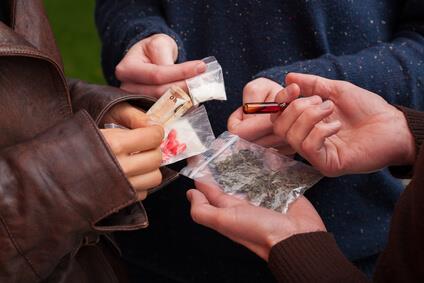 It may be tempting to represent yourself on a minor drug charge, but you should reconsider.
It may be tempting to represent yourself on a minor drug charge, but you should reconsider.
Convictions for the production, trafficking, and possession of drugs fall under the Controlled Drug and Substances Act (CSDA). Even a minor CSDA conviction can have serious, enduring consequences on your life. A criminal record for drugs can impact many aspects of a person’s life, including employment and international travel.
Issues that may arise up with Drug Offences
Drug offences can be particularly complex; charges and possible sentences vary significantly. Some issues that may arise in drug sentences are:
- The type of drug
- Quantity of the substance
- Purpose for its possession
- Amount of planning and deliberation pertaining to the offence
- Prior record of the offender
- Whether there was trafficking of other drugs involved.
Substances defined as "hard drugs," like heroin and cocaine, carry more severe sentences than so-called "soft drugs" like marijuana. Possession for the Purpose of Trafficking, Trafficking, and Production will result in harsher punishment than simple Possession.
"Trafficking" is a broad term, and includes anything from transporting and selling drugs to simply giving someone a drug. For example, sharing a "hit" of an illegal drug is considered trafficking.
"Possession" is another sweeping and multifaceted criminal charge. Many people believe being charged with possession requires personally holding a drug. However, one may be charged for simply being in the presence of someone with a drug. A group of people may be found guilty of Joint Possession. This occurs if any member of a party is holding drugs with the knowledge, consent, and assisted control of the others. Charges may also apply if an individual has stored drugs anywhere under their control.
"Production" includes any aspect of growing or producing drugs. Even assistants in the growth and production process can be incriminated. A property owner who knowingly allows others to use their premises for drug production may also face charges.
“Willful Blindness” is not a defence to a drug charge-- one does not need definitive proof or firsthand knowledge that a drug offence is taking place in order to be complicit.
The law surrounding drug offences can be extremely complex. You need a criminal defence lawyer whose knowledge and experience can provide the legal representation you deserve.
Our law firm has successfully represented hundreds of individuals facing drug offences. If you or a loved one has been charged, call Caramanna, Friedberg LLP at (416) 924-5969 for a free consultation. We are here to help 24/7.